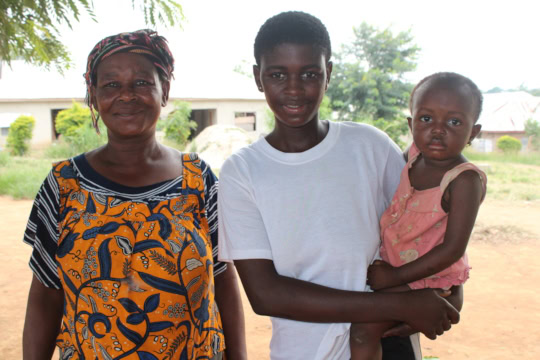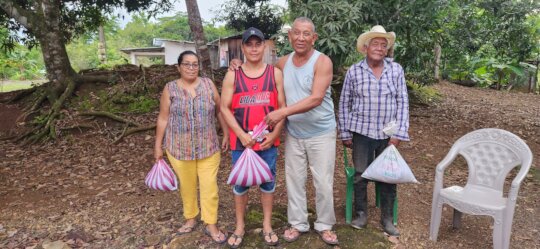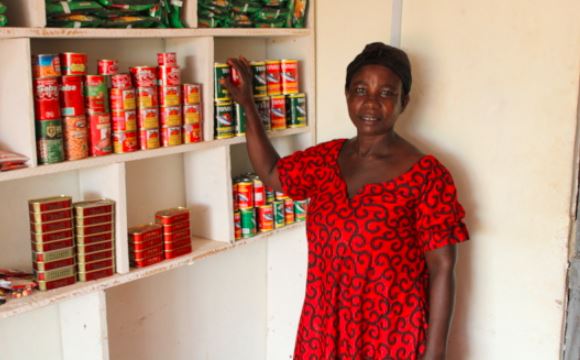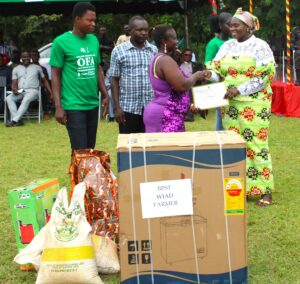More Women in Ghana Acquire Cell Phones

A farmer utilizing her cell phone
Beposo is a farming community in rural Ghana. It has no electricity but thankfully has a borehole for water. In 2011, nine women from this community benefited from Self-Help International’s micro credit program, receiving loans for petty trading and agro-processing.
After two loans the beneficiaries saw positive changes in their lives, the most notable being the purchase of cell phones by four women. In Ghana, cell phones can be purchased for $20-25. The number of beneficiaries using cell phones has more than doubled in the past couple of years, with approximately 3 in 5 beneficiaries now using the devices.
The use of cell phones is common among beneficiaries that specialize in trading because of the enhanced communication they provide with important trading partners. Without cell phones, the women could travel several kilometers without meeting their customers. Cell phones have provided them with the knowledge of when their trading partners will be available, saving precious time and energy while making their business more efficient.
The Women Behind the Phones
Elizabeth is a hairdresser who has eyes for beautiful things and is doing well with her loans.
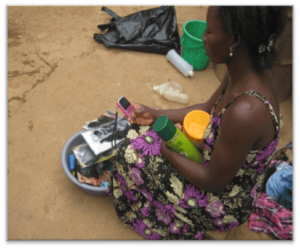
A hairdresser contacting customers
In front of Elizabeth are items for her hair dressing business such as wigs, hair cream and rollers. She tells Self-Help the phone makes it easier to schedule appointments with her clients. She tells clients, “…my cell phone number is written in front of my door…in case I am in the next village you just buzz me…” Instead of missing appointments, Elizabeth can communicate with her clients to let them know her whereabouts. Her cell phone can provide the vital link she needs to her clients, enabling her business to grow.

Mother contacting her daughter at boarding school
Cell phones aren’t just for trading businesses and emergencies, for Maame Adwoa her phone is a lifeline to her daughter who is at a teacher training college in the city. Maame is a farmer, whose participation in the micro credit program has improved her business, making it possible to send her children to a good school in the city.
The Challenge
There is no electricity in most villages, so how do they charge the batteries on their new cell phones without missing business calls? When batteries run down the phones are sent to nearby community with electricity, which will charge the phone for the fee of 50p (26 cents). Sometimes a phone sent in to be charges is either stolen or swapped. The search for a solution is still continuing.

